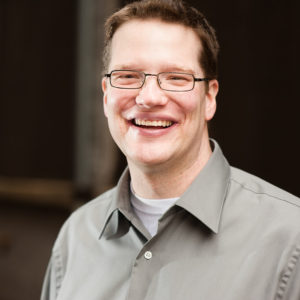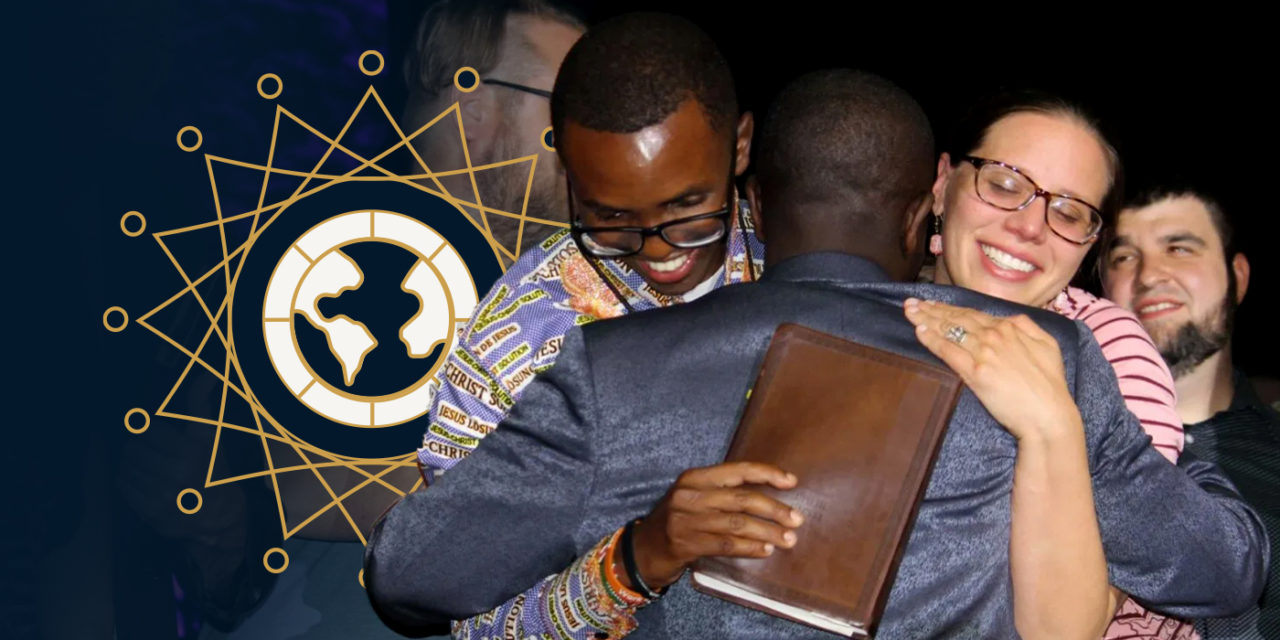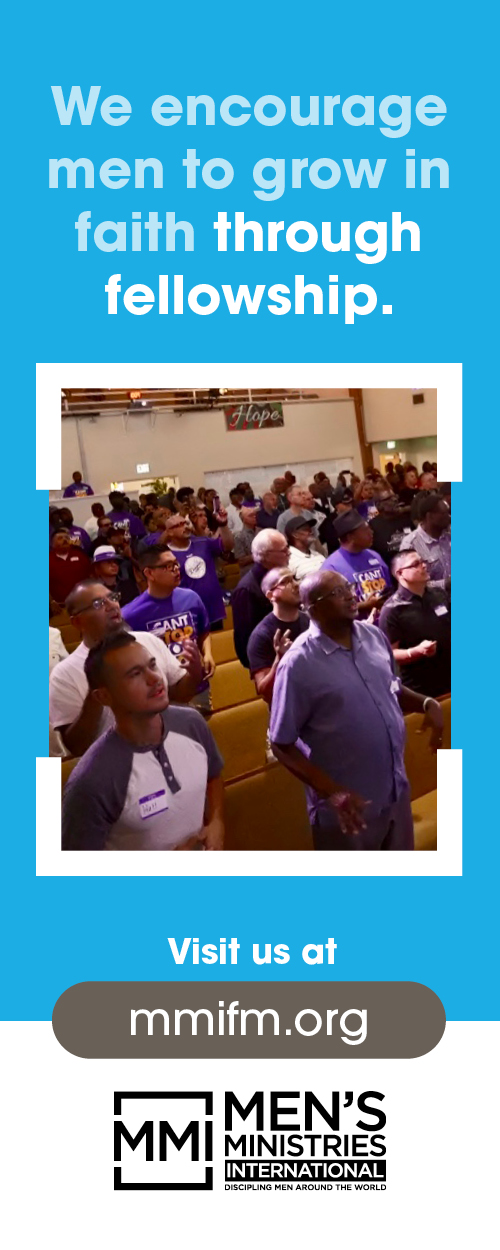
Jeff Finley
Light + Life Executive Editor
Jeff Finley is this magazine’s executive editor. He joined the Light+Life team in 2011 after a dozen years of reporting and editing for Sun-Times Media. He is a member of John Wesley Free Methodist Church where his wife, Jen, serves as the lead pastor.
by Jeff Finley
Cross-cultural collaboration isn’t just a Free Methodist Way value promoted by the Acts 12:24 Churches. It’s a reality in the Free Methodist annual conference serving parts of the East Coast from Northern New England to the Southern state of Virginia.
Acts 12:24 includes the Boston area that has been home to Spanish-speaking Free Methodists for decades. “Almost all the churches in the Boston area were Hispanic — developed really by one man, Matias Gonzalez who planted a lot of churches,” explained Conference Superintendent David Harvey, who noted in a Light + Life interview that Gonzalez’s daughter, Raisa Fabre, is now the Boston area regional superintendent and the senior pastor of Gracepoint Church. He said that Fabre planted Gracepoint as an English-speaking congregation because English is the native language of subsequent generations of immigrant families.
Spanish and English are just two of the languages heard when Acts 12:24 holds its annual conference alongside its Together Family Conference at a large indoor waterpark. The ordination service typically draws 1,000 people with translation also available in Portuguese and Swahili (which are among the language options at the top of the conference website). Many other languages can be heard among Acts 12:24 members each Sunday, and that diversity is reflected in leadership posts such as the regional Ministerial Education and Guidance (MEG) boards.
“We have about 19 languages in our conference and 14 ethnicities, and we are using people from all of these groups,” said Executive Superintendent Myller Olivio, a native of Brazil. “We don’t create affinity groups in our conference. Everybody functions with everybody.”
Opportunities for All
Olivio said that although the conference has had some diversity for decades, racial and ethnic minorities were underrepresented in leadership positions until recent years. The current conference leadership, however, is incredibly diverse. Olivio said that instead of “filling any quotas,” Acts 12:24’s leadership shifted to a focus on “being able to use all that Jesus has.” He said that diversity “was not the intention. It was just the result. The result is you have a lot of diversity in our conference because you allowed opportunity for all to contribute.”
Acts 12:24 has seven regions based on geography: Boston Metro, Connecticut, Eastern New York, Eastern Pennsylvania, Maryland-Virginia, New Jersey-New York Metro, and Northern New England. Each region has its own regional superintendent and MEG board with membership based on geography rather than race or ethnicity.
“We have about a hundred people involved in our MEG system, and of these hundred people, I would say 25 percent are Anglo,” Olivio said. “Haitians will lead Anglos. Anglos will lead Hispanics. Hispanics will lead Central Africans. Central Africans will lead Anglos. … It doesn’t matter the language you speak, because the language can be learned or can be translated.”
Olivio said that in Acts 12:24, “we break the tendency” for members of an ethnic group to interact only with people of the same ethnicity.
“We are a part of a whole, and everyone contributes to the whole,” Olivio said. “It’s amazing to see how much people from all backgrounds have to contribute, and they want to contribute. They’ve made themselves available. They work two or three shifts in order to make their ends meet, and they still have time to do kingdom expansion, work in a church, and provide work for the conference.”
Discovery and Development
Acts 12:24’s cultural diversity also results from the conference’s church multiplication focus under the leadership of Superintendent Harvey, who previously served as the denomination’s director of growth ministries.
“Multiplication has been in our DNA for a long time,” said Harvey, who noted that church multiplication “is happening in every place in the world except the West — Europe and the U.S.”
In January 2020, Acts 12:24 launched the “Opening Lanes to 1,000 Churches” initiative with Theo Burakeye and Chris Pulice each having the title of “1,000 Churches Facilitator.” Burakeye said that the start of the COVID-19 quarantine two months later led Pulice and him to concentrate on how the Discovery Bible Study could be used during a pandemic.
“We started posting, inviting people, and God surprised us,” said Burakeye, who added that he and Pulice facilitated approximately four online Bible studies each day. “Then eventually we started recruiting from the pool of people who we trained in Discovery Bible Study.”
The studies have attracted an international audience with one study primarily reaching people in a nation where Christians face persecution. Despite the global audience, many of the participants reside within the conference boundaries.
“We just finished training a couple in the Boston area,” said Burakeye, a native of the Congo who previously worked for the South Africa-based Community Church Planting organization. “We have 20-something churches that have been planted from the beginning of this year as the result of what we are doing.”
Their superintendent already was a big fan of this approach to studying the Bible.
“Discovery Bible Study is a method of studying the Bible that’s really spreading around the world. It works in small groups but without a teacher, so you just read a Bible story or a Bible passage,” Harvey said. “They may read it two or three times, and some people may say it in their own words, and then the group asks four questions like: What does this say about God? What does this say about people? What does this say I should start doing? What does it say I should stop doing? And then everyone in the room makes an ‘I will’ statement. Then they come back to Discovery Bible Study next week and they tell how they did with their ‘I will’ statement and then do another passage.”
One potential path to 1,000 new churches is Acts 12:24’s Church Development Network that plants new churches and connects with existing churches that are not yet part of the Free Methodist Church – USA. “There’s some belonging. We bring our network churches to our annual conference,” Harvey said. “They get coaching. There’s connection.”
After joining the network, some churches eventually opt for full FMCUSA affiliation while others don’t. The affiliation agreement requires harmony with the denomination’s Articles of Religion. “We want them to know who we are, what we believe, and what we’re trying to accomplish,” Harvey said.
The network has planted and attracted churches with membership from a variety of cultures and ethnicities.
“God is doing amazing things,” Burakeye said. “What God has been placing on my heart to encourage people with is today we live in the day and age for church planting in the USA. Even under restriction, God has demonstrated His faithfulness.”
Church plants don’t always fit the traditional church culture of Sunday morning services. Burakeye said that CrossFit trainer Justin Carpenter recently received permission to start a church that meets on Saturdays inside of a gym in Harrisonburg, Virginia.
“Every Saturday the church meets in the gym,” Burakeye said. “They do their CrossFit thing, but, before that, he preaches to them. They do a Discovery Bible Study.”
Cross-cultural collaboration also has occurred through the conference’s creation of the Central African Network to help Free Methodist immigrants from Africa connect with Free Methodists in the United States. The conference has spent thousands of dollars for Pulice, who also is the regional superintendent for Central African Ministries, to travel around the country gathering Free Methodist Central Africans into churches, many of which are then transferred to other conferences.
Although methods of cross-cultural collaboration may shift in the rapidly changing world of 2021, Acts 12:24’s namesake Bible verse still applies: “But the word of God continued to spread and flourish.”
+

Jeff Finley
Light + Life Executive Editor
Jeff Finley is this magazine’s executive editor. He joined the Light+Life team in 2011 after a dozen years of reporting and editing for Sun-Times Media. He is a member of John Wesley Free Methodist Church where his wife, Jen, serves as the lead pastor.









